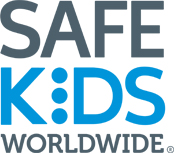By formalizing family agreements and being a good role model, parents can improve the odds against the leading cause of death for teens in the U.S.
Washington, D.C. – Every day, six teens die in a motor vehicle crash. These tragedies are often the result of inexperienced teen drivers taking risks like not buckling up, texting, driving with teen passengers, speeding, driving under the influence or driving in the dark. New research from Safe Kids Worldwide and General Motors Foundation reveals parents can play an important role in reducing this risky behavior by talking with their teens, formalizing – and enforcing – a family agreement about driving rules and modeling good behavior.
The report shows that when parents and teens discuss rules for driving, and come to an agreement, whether verbal or written, teens are less likely to engage in risky behavior while driving. For instance, teens who have an established family rule against drinking and driving were 10 times less likely to report doing that illegal behavior than those who didn’t have an established rule. Teens with explicit family rules were more likely to wear their seat belt every time and were less likely to drive distracted or speed.
The research also showed parents who demonstrated good behavior impacted the safe driving habits of their teen drivers. For example, teens who saw a parent driving after drinking were three times more likely to report driving after drinking than teens whose parents modeled safe behavior. And past research revealed that teens were more likely to buckle up on every ride if their parents made buckling up a consistent habit from a young age.
Particularly disturbing are the statistics on the risks for males. Males make up 75 percent of teen deaths in car crashes, and the risk of a crash by teen drivers is almost three times higher if their passengers are male.
“Our sons and daughters are dying in car crashes because they are inexperienced drivers who are taking unnecessary risks, like texting, driving under the influence, speeding and not wearing a seat belt,” said Kate Carr, president and CEO of Safe Kids Worldwide. “Given that 3 out of every 4 deaths is a son, I encourage all parents, particularly parents of young men to make it a priority to put an agreement in place and make sure you are following the rules, too.”
Teens also reported that their parents had the most influence on their driving and that the time teens spent practicing driving with their parents was the most helpful. Although legal requirements vary by state, it is recommended that teens get at least 50 hours of experience behind the wheel, under a variety of conditions, before setting out on their own. Having more experience behind the wheel helps new drivers manage driving in the dark and driving with other teen passengers in the car, situations that can increase the likelihood of crashes for young drivers.
“Technology advances in vehicles today, such as forward collision warning and automatic emergency braking, provide more help to the driver,” said Jeff Boyer, vice president of global vehicle safety at General Motors. “But being a new driver can be quite challenging, so it is especially important for teens to stay focused while driving and always buckle up. Additionally, our newly introduced Teen Driver feature now provides parents a teaching tool for their young drivers which helps to develop and reinforce safe driving habits.”
Smart Strategies for Parents of Teen Drivers:
- Make a formal agreement with your teen driver and enforce it.
- Be a role model for safe driving by following the rules yourself.
- Ensure your new teen driver gets at least 50 hours of experience under a variety of driving conditions.
Download the interactive infographic to review common risks and tips.
Download a sample family agreement.
The Safe Kids Buckle Up program is a national initiative established 19 years ago by Safe Kids and GM and the GM Foundation to keep children, teens and families safe in and around cars. GM’s long term commitment to educating families has helped the child safety program evolve into one of the most comprehensive in the nation, and covers children from birth to the time they become drivers.
About Safe Kids Worldwide
Safe Kids Worldwide is a nonprofit organization working to prevent childhood injury, the number one cause of death for children in the United States. Throughout the world, almost one million children die of an injury each year, and almost every one of these tragedies is preventable. Safe Kids works with an extensive network of more than 400 coalitions in the U.S. and with partners in more than 30 countries to reduce traffic injuries, drownings, falls, burns, poisonings and more. Since 1988, Safe Kids has helped reduce the U.S. childhood death rate from unintentional injury by 60 percent. Working together, we can do much more for kids everywhere. Join our effort at safekids.org.
About the General Motors Foundation
Since its inception in 1976, the GM Foundation has donated hundreds of millions of dollars to American charities, educational organizations and to disaster relief efforts worldwide. The GM Foundation focuses on supporting Education, Health and Human Services, Environment and Energy and Community Development initiatives, mainly in the communities where GM operates. Funding of the GM Foundation comes solely from GM. The last contribution to the GM Foundation was made in 2001. For more information, visit www.gm.com/gmfoundation.
